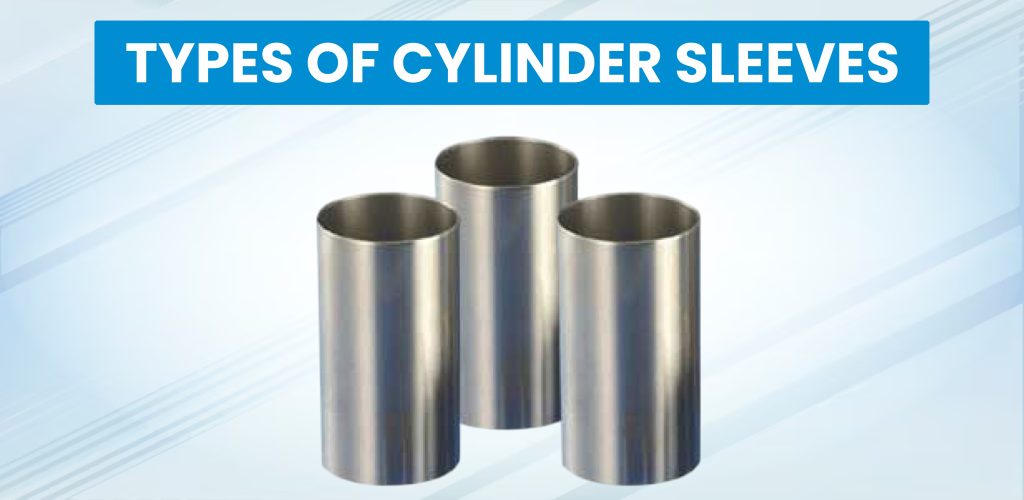
Cylinder sleeves are a crucial component in internal combustion engines, offering protection, durability, and performance improvements to the engine block. These sleeves act as a barrier between the engine’s combustion chamber and the block itself, helping to withstand high temperatures and pressures while minimizing wear and tear. But did you know that there are different types of cylinder sleeves available? Each type offers unique benefits and is suited for different types of engines, meaning that the right choice can greatly enhance your engine’s efficiency and longevity.
Whether you’re looking to upgrade your engine or rebuild it, understanding the various cylinder sleeve materials and designs is key to choosing the right one for your engine’s needs. The selection process can be daunting, especially with the wide array of options available on the market today. From cast iron to aluminium and even advanced composite materials, different sleeves can dramatically influence performance characteristics, heat dissipation, and overall reliability.
Understanding Cylinder Sleeves: Why They Matter
Cylinder sleeves, often referred to as liners, are inserted into the engine block’s cylindrical bores to protect the engine from wear, corrosion, and heat damage. They also help the engine maintain compression and overall performance over time. Sleeves are often used when the original cylinder bores are damaged or worn out. Instead of replacing the entire engine block, cylinder sleeves offer a more cost-effective solution by allowing for a rebuild.
What Are the Main Types of Cylinder Sleeves?
When choosing cylinder sleeves for your engine, it’s important to understand the various options available, as each type comes with its specific advantages and ideal use cases.
1. Cast Iron Cylinder Sleeves
Cast iron is the most traditional and widely used material for cylinder sleeves. It has been a standard for many decades due to its excellent durability, resistance to wear, and ability to handle high heat. Cast iron cylinder sleeves are typically found in standard factory-built engines and are ideal for both performance and everyday use.
Pros of Cast Iron Cylinder Sleeves:
-
Durable: Cast iron resists wear and tear, which prolongs engine life.
-
Affordable: Compared to other materials, cast iron is relatively cost-effective.
-
Thermal Conductivity: Excellent at dissipating heat, which is crucial for engine performance.
-
Strength: Strong enough to withstand the high pressures inside the engine.
Ideal Use: Standard passenger vehicles, light-duty trucks, and engines that experience regular wear and tear.
2. Steel Cylinder Sleeves
Steel cylinder sleeves are often used in high-performance and racing engines due to their ability to withstand extremely high pressure and temperatures. Steel is stronger than cast iron and offers better wear resistance in extreme conditions.
Pros of Steel Cylinder Sleeves:
-
High Strength: Steel offers better strength than cast iron, making it ideal for high-performance engines.
-
Heat Resistance: Steel is highly resistant to heat, making it suitable for engines that operate under heavy loads and high temperatures.
-
Longevity: Steel sleeves are durable and tend to last longer in demanding environments.
Ideal Use: Racing engines, heavy-duty trucks, and high-performance vehicles that require a more robust material.
3. Aluminum Cylinder Sleeves
Aluminum sleeves are lighter than both cast iron and steel and provide excellent heat dissipation, making them a popular choice for engines that require better cooling performance. However, aluminum is more prone to wear compared to steel or cast iron, so it is typically used in specific applications where lightweight and cooling are more important than sheer strength.
Pros of Aluminum Cylinder Sleeves:
-
Lightweight: Aluminum is much lighter than cast iron or steel, which is useful in applications where reducing engine weight is important.
-
Better Heat Dissipation: Aluminum conducts heat away from the engine, making it ideal for engines that are sensitive to heat.
-
Corrosion Resistance: Aluminum naturally resists rust and corrosion.
Ideal Use: High-performance engines, racing applications, and aircraft engines where weight and heat control are crucial.
4. Nicasil-Coated Cylinder Sleeves
Nicasil (Nickel, Carbon, Silicon) coated sleeves are a premium option often used in high-performance and racing engines. The Nicasil coating offers outstanding durability and hardness, as well as a low friction surface that enhances engine performance and longevity. Nicasil-coated sleeves are usually applied over aluminum sleeves to combine the best of both materials.
Pros of Nicasil-Coated Cylinder Sleeves:
-
Wear Resistance: Nicasil provides superior wear resistance and reduces friction between the piston and sleeve.
-
Lightweight and Strong: The aluminum core combined with the Nicasil coating makes this sleeve both lightweight and durable.
-
Improved Performance: The reduced friction results in better engine efficiency and higher horsepower.
Ideal Use: High-performance racing engines, motorcycles, and engines that need a combination of strength and weight savings.
5. Dry and Wet Cylinder Sleeves
Cylinder sleeves can be categorized into two main types based on how they are fitted into the engine block: dry sleeves and wet sleeves. The main difference lies in how the sleeves interact with the coolant.
-
Dry Sleeves: These do not make direct contact with the engine coolant. They are usually held in place by interference fit and are designed to operate in a dry environment.
-
Wet Sleeves: These are designed to come into contact with the coolant. Wet sleeves are often used in heavy-duty or high-performance engines where cooling is a significant factor in engine life.
Pros of Dry Cylinder Sleeves:
-
Better Sealing: Dry sleeves tend to offer better sealing because there is no coolant exposure.
-
Cost-Effective: Dry sleeves are usually less expensive than wet sleeves.
Pros of Wet Cylinder Sleeves:
-
Enhanced Cooling: Wet sleeves help improve the engine’s cooling system, especially for high-output or heavy-duty engines.
-
Easier Maintenance: If a sleeve becomes damaged, it’s often easier to replace a wet sleeve without affecting the rest of the engine.
Ideal Use:
-
Dry Sleeves: Standard engines that do not require extensive cooling solutions.
-
Wet Sleeves: Diesel engines, heavy-duty trucks, and high-performance engines that demand better cooling systems.
Frequently Asked Questions (FAQs)
What is the difference between dry and wet cylinder sleeves?
Dry sleeves do not come into contact with coolant, whereas wet sleeves are designed to be in contact with coolant to enhance the engine’s cooling system.
Can you use aluminum cylinder sleeves in all types of engines?
Aluminum cylinder sleeves are best used in applications where lightweight construction and heat dissipation are important, but they may not be ideal for engines that require extreme durability.
Are Nicasil-coated cylinder sleeves better than standard sleeves?
Nicasil-coated cylinder sleeves offer improved performance, longevity, and wear resistance, making them a great choice for high-performance engines.
How do I know which cylinder sleeve to choose?
It depends on your engine type and its specific needs. For regular use, cast iron is usually the best, while for performance engines, steel or Nicasil-coated sleeves might be the better choice.
How long do cylinder sleeves last?
The lifespan of a cylinder sleeve depends on the material, the type of engine, and how well it is maintained. Steel and Nicasil-coated sleeves tend to last longer in high-performance environments.
Conclusion
Choosing the right cylinder sleeve can make a world of difference in the performance, longevity, and reliability of your engine. Whether you’re looking for something cost-effective, lightweight, or capable of withstanding extreme pressures, there’s a cylinder sleeve designed to meet your needs. By understanding the different types of cylinder sleeves, their materials, and applications, you can make an informed decision and ensure that your engine performs at its best.


